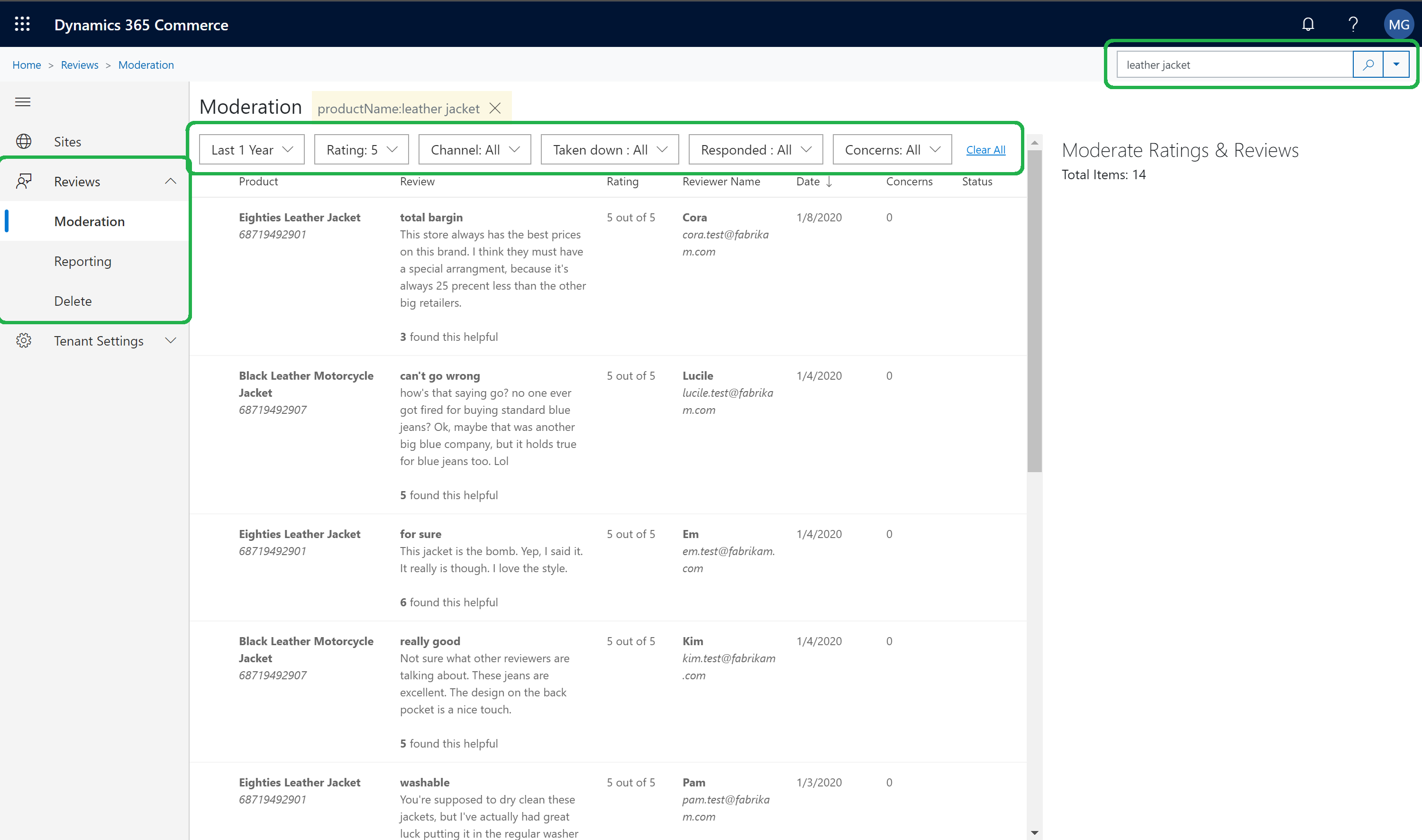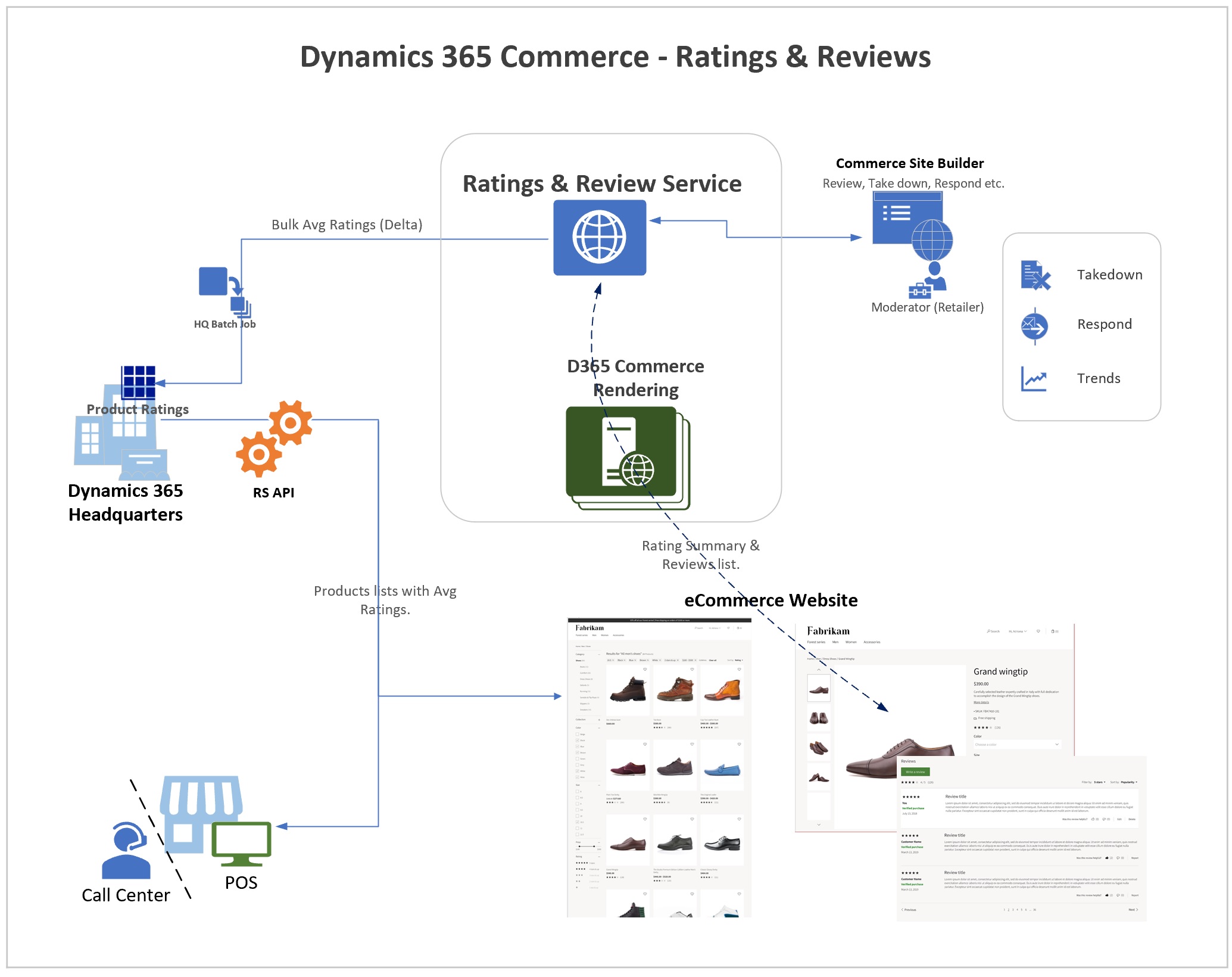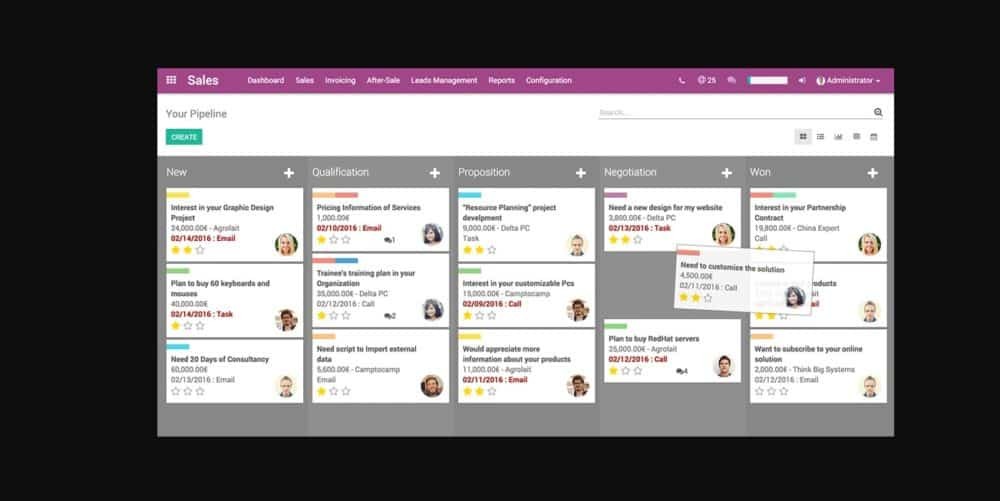Microsoft Dynamics 365 is a popular business tool. Many companies use it for various needs.
This blog post will dive into reviews of Microsoft Dynamics 365, giving you a clear picture of its benefits and drawbacks. Microsoft Dynamics 365 combines CRM and ERP solutions. It helps businesses manage their operations and customer relations. But is it the right fit for you?
By exploring user reviews and experiences, you’ll understand its real-world applications. You’ll also learn about potential challenges. This can help you make an informed decision. Stay tuned as we break down the key insights and feedback from current users. Let’s see if Microsoft Dynamics 365 lives up to the hype.

Credit: www.youtube.com
Introduction To Microsoft Dynamics 365
Microsoft Dynamics 365 is a suite of intelligent business applications. It helps businesses streamline operations, improve customer engagement, and drive growth. This cloud-based platform integrates ERP and CRM capabilities. It offers a comprehensive solution for managing various business processes.
What Is Microsoft Dynamics 365?
Microsoft Dynamics 365 combines ERP and CRM functionalities. It supports sales, marketing, customer service, and operations. The platform leverages AI and machine learning. It enhances decision-making and automates repetitive tasks.
Key Features And Capabilities
Microsoft Dynamics 365 offers several key features. It includes robust data analytics and reporting tools. Users can gain valuable insights from their data. The platform also supports seamless integration with other Microsoft products.
Another key capability is its scalability. Businesses can start with what they need and expand later. The platform is suitable for small, medium, and large enterprises. Dynamics 365 also offers industry-specific solutions. These cater to unique business needs and challenges.
The customization options are extensive. Users can tailor the system to meet their specific requirements. This flexibility ensures a personalized experience. The user interface is intuitive and easy to navigate. It reduces the learning curve for new users.

Credit: learn.microsoft.com
User Interface And Experience
Microsoft Dynamics 365 is well-known for its user-friendly interface. Users find it intuitive and easy to navigate. This section explores the user experience of Dynamics 365, focusing on ease of navigation and customization options.
Ease Of Navigation
Users appreciate the clean layout of Dynamics 365. The dashboard is well-organized. Key functions are easy to locate. You can quickly find what you need. This reduces the time spent learning the system. Navigation is smooth and straightforward.
Customization Options
Dynamics 365 offers various customization options. You can tailor it to fit your business needs. Change the layout, add new fields, or modify existing ones. These options help users create a personalized experience. Customization ensures the system aligns with your workflow.
Performance And Reliability
Microsoft Dynamics 365 is known for its strong performance and reliability. Users often praise its ability to handle large amounts of data and execute tasks quickly. Let’s take a closer look at two key aspects: System Stability and Speed and Efficiency.
System Stability
System stability is crucial for any software. Microsoft Dynamics 365 excels in maintaining a stable environment. Users rarely face crashes or significant downtime. This stability ensures that businesses can operate smoothly without interruptions.
Companies rely on Dynamics 365 for critical operations. The platform’s robust architecture supports continuous performance. Regular updates and patches from Microsoft also contribute to its reliability.
Speed And Efficiency
Speed and efficiency are vital for productivity. Microsoft Dynamics 365 offers impressive speed in data processing and task execution. Users can complete tasks faster, improving overall efficiency.
Here are some key features contributing to its speed:
- Optimized data management
- Fast query execution
- Efficient resource allocation
Comparing the performance with other CRM solutions, Dynamics 365 often stands out. A quick response time means less waiting and more productivity.
Performance tests show that Dynamics 365 performs well under heavy loads. This makes it suitable for both small and large enterprises.
Overall, Microsoft Dynamics 365’s performance and reliability set it apart. Whether you need a stable system or fast operations, Dynamics 365 delivers.
Integration Capabilities
Microsoft Dynamics 365 is a powerful tool for businesses. It offers comprehensive integration capabilities. These capabilities allow seamless connectivity with other software and systems. This ensures a smooth workflow and data consistency across the enterprise.
Compatibility With Other Software
One of the strengths of Dynamics 365 is its compatibility. It integrates well with Microsoft Office 365, SharePoint, and Azure. This makes it easier to use alongside your existing tools.
The software also supports third-party applications. This means you can connect it to your favorite CRM, ERP, or other business tools. This flexibility enhances productivity and efficiency.
Apis And Extensions
Dynamics 365 offers a range of APIs for custom integrations. These APIs allow developers to build tailored solutions that meet specific business needs. You can also use these APIs to connect with external systems and services.
Additionally, the platform supports extensions. These extensions add new features and functionalities. They help in customizing the system to better fit your business processes. With a strong developer community, you can find many pre-built extensions.
Here is a table summarizing the key aspects:
| Integration Type | Details |
|---|---|
| Compatibility | Works with Office 365, SharePoint, Azure, and third-party apps |
| APIs | Provides APIs for custom integrations and connecting external systems |
| Extensions | Supports extensions for adding features and functionalities |
In summary, Microsoft Dynamics 365 excels in integration capabilities. It ensures your business tools work together smoothly.
Customer Support And Service
Microsoft Dynamics 365 is known for its strong customer support and service. Users often praise the quick and reliable assistance. This is crucial for businesses. It ensures smooth operations and problem-solving. Let’s explore the key aspects of their support.
Support Channels
Microsoft Dynamics 365 provides various support channels. Users can choose from phone, email, and live chat options. They also offer a comprehensive knowledge base. This helps users find answers to common questions. The community forums are another great resource. Users can interact and share their experiences.
Response Times
Response times are vital for effective support. Microsoft Dynamics 365 excels in this area. Most users report quick responses. The support team aims to resolve issues promptly. This minimizes downtime and boosts productivity. Quick support is a major advantage for businesses. It enhances user satisfaction and trust.
Pricing And Value For Money
Understanding the cost and value of Microsoft Dynamics 365 is crucial. Companies must know the price before investing. This section will help you understand the pricing models and the value for money.
Subscription Models
Microsoft Dynamics 365 offers flexible subscription models to meet different needs. You can choose between monthly or annual plans. These plans can be tailored based on the number of users and modules required. Here is a table to give you an idea:
| Plan Type | Monthly Cost | Annual Cost | Features |
|---|---|---|---|
| Basic | $70 | $840 | Core CRM functionalities |
| Standard | $95 | $1,140 | Additional analytics tools |
| Advanced | $150 | $1,800 | Full suite of ERP and CRM tools |
Cost-benefit Analysis
To understand if Dynamics 365 is worth the investment, one must perform a cost-benefit analysis. Here are a few points to consider:
- Initial Costs: The initial subscription fee and possible setup costs.
- Operational Costs: Ongoing monthly or annual fees.
- Training Costs: Training employees to use the system efficiently.
- Benefits: Improved productivity, better data management, and enhanced customer service.
The benefits often outweigh the costs. Improved customer relationships lead to better sales. Enhanced data insights help in making informed decisions. In the long run, Dynamics 365 can provide a significant return on investment.
User Feedback And Testimonials
User feedback and testimonials provide valuable insights into Microsoft Dynamics 365. These reviews help potential users understand the strengths and weaknesses of the software. In this section, we will explore positive experiences and common complaints shared by users.
Positive Experiences
Many users praise Microsoft Dynamics 365 for its user-friendly interface. They find it easy to navigate and use daily. The integration with other Microsoft products like Outlook and Excel adds to its appeal. This seamless connection saves time and increases productivity. The customization options are another highlight. Users appreciate the ability to tailor the software to their specific needs. This flexibility ensures the software grows with their business. The robust reporting and analytics tools also receive positive feedback. These tools help users make informed decisions based on real-time data.
Common Complaints
Despite the positive feedback, some users have complaints. One common issue is the high cost of the software. Small businesses may find it expensive to implement and maintain. Another frequent complaint is the complexity of initial setup. New users may need significant time to configure the software correctly. Some users also report occasional performance issues. These can include slow loading times or glitches during use. Finally, customer support receives mixed reviews. While some users find the support helpful, others feel it can be slow and unresponsive.
Comparisons With Competitors
Choosing the right CRM software is crucial for business success. Microsoft Dynamics 365 competes with several other leading platforms. This section compares Dynamics 365 with Salesforce and Oracle. These comparisons will help you understand the strengths and weaknesses of each option.
Dynamics 365 Vs Salesforce
Salesforce is known for its robust customization options. It offers many third-party integrations. Dynamics 365, on the other hand, integrates seamlessly with Microsoft products. This can be a big advantage for companies already using Office 365 or Azure.
Salesforce has a user-friendly interface. Many users find it easy to navigate. Dynamics 365 has a steeper learning curve. However, it provides deeper data insights and analytics.
Cost is another factor. Salesforce can be more expensive than Dynamics 365. This makes Dynamics 365 a cost-effective solution for many businesses.
Dynamics 365 Vs Oracle
Oracle CRM is known for its powerful database management. It excels in handling large amounts of data. Dynamics 365 also offers strong data management but with a user-friendly interface.
Oracle CRM may require more technical expertise. Dynamics 365 is easier to implement for non-technical users. It also offers better integration with other Microsoft services.
Oracle CRM can be more costly than Dynamics 365. Businesses looking for an affordable option may prefer Dynamics 365.
Both platforms offer strong features. The choice depends on your business needs and existing infrastructure.
Conclusion And Recommendations
After exploring the features and benefits of Microsoft Dynamics 365, it is time to summarize the key points. This section will provide an overall assessment and recommend who should use this platform. Let’s dive into the details.
Overall Assessment
Microsoft Dynamics 365 is a robust and comprehensive solution. It combines CRM and ERP capabilities to streamline business operations. The platform offers a wide range of features, including:
- Customizable dashboards
- Data analytics
- Sales and marketing automation
- Customer service management
- Financial and supply chain management
Its integration with other Microsoft products is seamless. This ensures a smooth workflow across different departments. The user interface is intuitive, making it easier for teams to adapt quickly.
| Pros | Cons |
|---|---|
| Comprehensive features | High cost |
| Seamless integration | Complex setup |
| Intuitive interface | Requires training |
Who Should Use Dynamics 365?
Dynamics 365 is ideal for medium to large enterprises. Businesses with complex operations will benefit the most. It suits industries like:
- Manufacturing
- Retail
- Healthcare
- Finance
Organizations needing in-depth data analysis will find it useful. Teams looking for a unified platform for all business functions should consider it. If your business demands robust customer service management, Dynamics 365 is a great choice. It also works well for companies looking to automate sales and marketing processes.
Small businesses with limited budgets might find it expensive. Those with simpler needs might not require such a comprehensive solution. Evaluate your business requirements before making a decision.

Credit: learn.microsoft.com
Frequently Asked Questions
What Is Microsoft Dynamics 365?
Microsoft Dynamics 365 is a suite of business applications. It combines CRM and ERP capabilities. It helps businesses streamline operations.
How Does Dynamics 365 Improve Business Processes?
Dynamics 365 improves business processes by integrating various functions. It offers real-time insights and automates tasks. This increases efficiency and productivity.
Is Microsoft Dynamics 365 Customizable?
Yes, Microsoft Dynamics 365 is highly customizable. Users can tailor it to fit their specific business needs. This ensures optimal performance.
What Are The Key Features Of Dynamics 365?
Key features of Dynamics 365 include CRM, ERP, AI, and analytics. It also offers marketing, sales, and customer service tools. These features enhance business management.
Conclusion
Microsoft Dynamics 365 offers many features for businesses. It helps improve efficiency. The user-friendly interface makes it accessible for all. Customization options cater to diverse needs. Integration with other tools enhances productivity. Users appreciate its robust support and frequent updates.
Overall, it is a solid choice for business management. Consider Dynamics 365 for your next software upgrade. It could streamline operations and boost productivity. Make an informed decision based on your specific needs.



